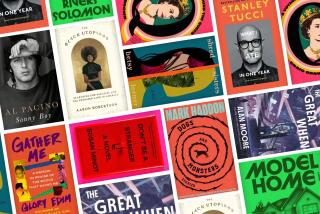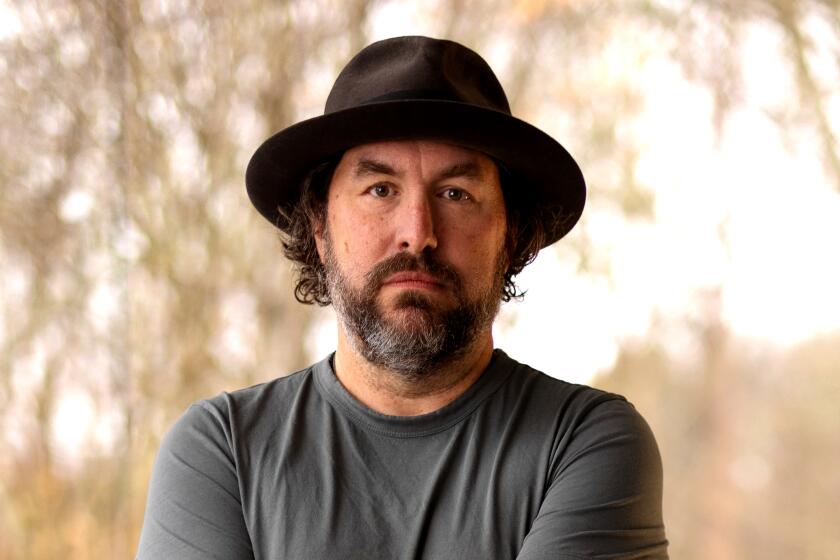National Book Awards: nonfiction longlist
The 10 books on the National Book Awards’ longlist for the nonfiction prize include works by some of the nation’s best-known historians, a memoir about a childhood in the shadow of the CIA and bestselling books about America’s economic decline and the growth of the Church of Scientology.
Two of the books explore the topic of slavery, 150 years after the signing of the Emancipation Proclamation: “The Internal Enemy: Slavery and War in Virginia, 1772-1832” by Pulitzer Prize-winning historian Alan Taylor; and James Oakes’ “Freedom National: The Destruction of Slavery in the United States, 1861-1865.”
The other works of history on the longlist include a chilling account of the role of women on the Eastern Front in World War II: “Hitler’s Furies: German Women in the Nazi Killing Fields” by Wendy Lower, a historian, professor and consultant at the United States Holocaust Memorial Museum; and Jill Lepore’s “Book of Ages: The Life and Opinions of Jane Franklin,” which recounts the life of Benjamin Franklin’s sister, a mother of 12 who was, like her brother, an astute commentator and gifted writer.
The only other biography on the list is “Duke: A Life of Duke Ellington” by Terry Teachout.
Two of the most widely discussed nonfiction books of the year also made the list: George Packer’s “The Unwinding: An Inner History of the New America,” an account of the booms and busts and the shifting political landscape of the last 35 years that The Times called “epic”; and Lawrence Wright’s, “Going Clear: Scientology, Hollywood and the Prison of Belief,” an account of Scientology’s rise that The Times called “enthralling” and filled with “guilty pleasures.”
Rounding out the list are T.D. Allman’s unconventional, multi-century history “Finding Florida: The True Story of the Sunshine State;” Gretel Ehrlich’s account of her travels through Japan, “Facing the Wave: A Journey in the Wake of the Tsunami; and the only memoir on the list, Scott C. Johnson’s, “The Wolf and the Watchman: A Father, a Son, and the CIA.”
Traditionally, the National Book Foundation, which organizes the awards, names five finalists. This year, in part of an effort to revamp the awards, the foundation had its panels of judges name 10-book longlists in each category. It has also spread out the announcement of the nominees over four days. The fiction list is to be made public Thursday.
Harold Augenbraum, the foundation’s executive director, said the expanded longlists “allowed the judges a certain flexibility they might not have had otherwise,” and he praised the diversity of the selections in the young people’s literature, poetry and nonfiction categories.
In the nonfiction category, nine of the 10 authors are receiving National Book Award recognition for the first time.
“It’s a win-win situation for everyone concerned,” Augenbraum said. “It’s increased the conversation” about books, he added. “That’s what we’re after.”
As it announces each set of nominees, the National Book Awards’ website has seen an eightfold increase in traffic compared with last year, he said.
A list of five finalists in each category is to be announced on Oct. 16, and the winners are to be announced Nov. 20 in New York.
ALSO:
The National Book Awards 2013: Poetry longlist
Billy Crystal’s storytelling trumps kvetching in ‘Still Foolin’ ‘Em’
National Book Award releases longlist for Young People’s Literature
More to Read
Sign up for our Book Club newsletter
Get the latest news, events and more from the Los Angeles Times Book Club, and help us get L.A. reading and talking.
You may occasionally receive promotional content from the Los Angeles Times.










